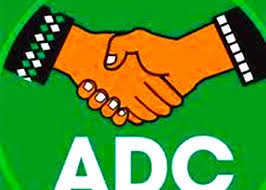By Obi Ebuka Onochie
Commodity traders are responsible for oil prices by bidding on oil futures contracts. These contracts are basically agreements to buy or sell oil at a specific date in the future for an agreed-upon price.
These futures contracts are executed on the floor of a commodity exchange by traders who are registered with the Commodities Futures Trading Commission. Commodities have been traded for more than 100 years, and have been regulated by the CFTC since the 1920s but that has changed in Oil and Gas trading with manipulative factors driving the price change.
Nigerian economy is Oil and Gas based and the dwindling oil price at international market will certainly affect every economic activity in Nigeria since our economic foundation is deeply fixed on the price of Oil and Gas. This could be the main reason the presidency is yet to present drafted budget for the year 2015 to the legislature for consideration and approval. It is a fortunate period for Nigeria at the time of oil price crisis, her minister of Petroleum, Mrs. Deziani Alison Madueke was appointed OPEC president. This will enhance Nigeria’s stake and protect her interest which will in extension save her economy from total collapse.
Some keen followers of the crude price at international market observed that unusual external factors have supplanted other internal factors driving crude price putting OPEC at grip or lose situation of the price control. They identified these factors as discovery and increase in Shale oil production, international diplomatic row between the East and West and increase in oil theft around the world especially in Nigeria which often time cause oil glut in the market. None of these factors affects oil price as much as the row between the east and west. It is believed that the west artfully and disingenuously manipulated oil prices to punish Russia for their overbearing influence in the internal affairs of Ukraine. Well that is an unprovable postulation but if one were to go by it, the slid in oil price will continue for a longer period of time except something drastic is done to reverse it.
Doing something to counter this infiltrating interest of the west in crude price determination is where OPEC comes in. OPEC that has the responsibility of countering any external influence in oil price is engulfed in great tumult stoked by two Mideast factions of Saudi Arabia and Iran. Iran favours reduction in crude production by OPEC members to help increase the price but Saudi Arabia disfavours the option and proposes that status quo be maintained. Many believe that Saudi Arabia wants sustenance of present level of oil production among OPEC member to deny Iran the fund to pursue their nuclear ambition. Iran, a close ally of Russian federation has considerable influence in OPEC but definitely not a match to the west backed Saudi Arabia in that direction.
In the middle of all the storm is Mrs. Diezani Alison-Madueke the new OPEC president. She is expected to resolve the oil price hassle in the interest of majority of OPEC members. To do this, she has interest to dislodge, toes to step on, order to restore and upon all, Nigeria’s interest to protect. Having Mrs. Madueke as the president of OPEC is not enough for Nigeria’s economic redemption but economic diversification holds the magic wand. Diversification of Nigeria’s economy will put it in a better shape, position and angle to avoid future infiltrating strangulation from other nations or being punished alongside others. Nigeria has no business depending on oil, fretting at the fall in oil prices or being bullied into unfavourable cooperation by any other nation on earth. Its high time Nigerian government started diversification of nation’s economy, building a thriving society that can hold her own in the comity of nations and projecting a healthy image.
Economic diversification is vital to countries’ long-term economic growth, but many resource-rich countries remain heavily reliant on revenues generated by oil production or mining, jeopardizing their chances for sustainable growth. Too often, countries lack clear policy guidelines on how to diversify, and policymakers have limited understanding of why diversification is important. Diversification is driven by human capital development which is the starting point, driving force and sustaining force. Nigeria can take a cue from the Malaysian story which highlights the fact that good diversification policy requires a long-term perspective, with a concerted and sustained effort to channel the resources and funds that can build effective institutions. Countries like Bolivia, Botswana, Kazakhstan seem to be trapped in the same intermission of diversification like Nigeria where lip service starts and ends the project. As the price of oil in the international market is falling like lightning in the sky, that time has come for countries depending on oil to diversify or face great economic quake that has the potential to threaten their political stability.


